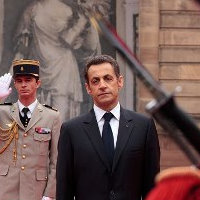Last week's brazen kidnapping of seven foreigners, including five Frenchmen, by al-Qaida-linked militants in a uranium mining town in Niger has increased pressure on both France and the European Union to become more militarily involved in the region's fight against jihadists. The kidnapping threatens France's major source of uranium for its nuclear power plants, calls into question the practice by some European governments of paying ransoms to free hostages, and throws down the gauntlet for the EU in its counterterrorism efforts.
In response to the abductions, French Foreign Minister Bernard Kouchner and seven of his European counterparts urged EU foreign policy chief Catherine Ashton to increase EU engagement in security and development in the Sahel, one of the world's poorest regions, arguing that the "populations there must have . . . another perspective than that offered by terrorists." Now, France has reportedly deployed 80 troops, including anti-terror and special operations forces, as well as reconnaissance aircraft to Niamey to support efforts to locate the abductees.
France and Spain have already found themselves increasingly drawn into the conflict in the Sahel due to a spate of kidnappings of their nationals by al-Qaida in the Islamic Maghreb (AQIM), al-Qaida's northwest African affiliate that operates primarily in Algeria, Mauritania, Mali and Niger.

